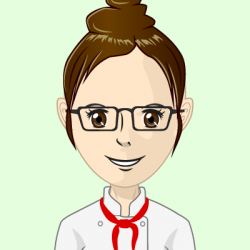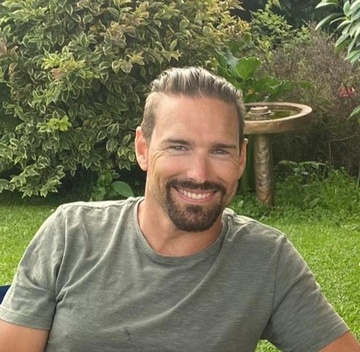Post-traumatic stress disorder (PTSD) - Tips
Tips for coping with PTSD
Would you like some tips and advice how to deal with post-traumatic stress disorder (PTSD)?
This forum is a great place to explore several tips.
Looking for more support?
Overview of tips
All tips
Tip 1 - Don't keep walking around with malady
Don't keep walking around with malady that is caused by previous traumatic experiences.
These symptoms often do not decrease when you give it time and they can influence your life in many ways. There are very good treatment possibilities for PTSD. Talk about it with your general practitioner.
Tip 2 - Talk about your family with your GP
Post-traumatic stress disorder can make it hard to take care of children. You can cope with less and are faster annoyed or angry. You may say or do things that you later regret. When you have children, talk about it with your general practitioner, how it is going in your family.
Tip 3 - Give your unresolved emotions space in a loving surrounding
You suffered from intense painful experiences in your life and you still carry the consequences of it. This makes it twice as hard. It can even be that it also makes you feel that you come short or feel useless.
But there is a reason that you are like you are and the first thing you may learn is to look at yourself with compassion. If you would have been able to, you would have done it different, but that was not possible.
First of all it is so important to look for help! You need someone that can and want to hear your story. Somebody that is can look at your life merciful and loving and gives you the space and encourages you to reach your emotions.
Allowing your emotions in a merciful loving space is healing.
Tip 4 - Find a place for your emotions in a safe space
Fear, sadness and anger are healthy and reasonable responses to a painful happening. In a safe surrounding there is, after such a happening, space to share those feelings and process them.
Sometimes the people around you don't have the ability to be there for you. You get for example the feedback that it was horrible, but that it is time now to stop looking back and move forward.
In the worst case, your 'safe' surrounding is the place where the trauma happened. For example with domestic violence and/ or incest.
When your surrounding at the time of the trauma was not safe or even unsafe, the chance exists that the trauma stays unresolved and keeps lingering in your life. In some cases you can develop a post-traumatic stress disorder.
Therapy is a safe surrounding where the space is created to process the unresolved feelings and learn to feel your boundaries again and learn to stand up for yourself.
Tip 5 - EMDR helps for PTSD
For PTSD there is therapy called EMDR. It can give very good results for the symptoms. Within a short period of time, a part of the symptoms can be dissolved.

Tip 6 - Consciously start using your senses
When a dramatic event is hard to process, there are moments where the same feelings you had then suddenly overwhelm you. Like panic, freezing or, so to say, go out of your body.
When that happens to you, it helps to consciously start using your senses. Open your eyes and look for things with a certain color, look at the details, the design, smell a certain scent you can carry around with you, start listening to the sounds that surround you etc.
In therapy you can learn to stop these moments from happening. Good luck!
Tip 7 - Find a counsellor
Do you suffer from post-traumatic stress disorder (PTSD) and could you use some support?
A therapist or counsellor can help you.
Tip 8 - Medicine and PTSD
In dealing with post traumatic stress disorder, the work of a psychologist is mostly the main treatment.
Antidepressants can support the psychotherapy and/ or EMDR. But medicine are never the only treatment.
Calming pills (like benzodiazepinen or diazepam) are less suitable for PTSD. Research shows that in case of PTSD these pills can even increase the symptoms in stead of calming the person down. So never take those medicine without discussing it with your general practitioner.
Antidepressants can have side effects.
Tip 9 - Emotional Freedom Technique (EFT) can really help
Emotional Freedom Technique (EFT) can really help. It was developed and trialed extensively with US war veterans. These veterans had been struggling for decades and most of them found relief using EFT.
EFT uses acupressure points on your face and upper body and could be called acupuncture for mental health and well-being - no needles involved. It targets our blocked energy system which results in feeling better and thinking more clearly. The technique involves tapping on your body, thereby connecting mind, body and emotions.
You can learn this technique online, but to deal with trauma you are best to find a therapist trained in this modality.
Tip 10 - Remember your reaction is normal and PTSD is not rare
If the trauma has now manifested itself in PTSD I'd like to say that PTSD is not so uncommon and numerous people experience it at some stage of their life. I have witnessed it numerous times as a therapist from people who have come out of destructive relationships.
Recognise that your reactions are all normal and seek a safe therapeutic space where you can be with what is going on for you and the space to go back and forth between the past and now. The safe space (along with strategies) will allow the trauma to ultimately subside and for a healthy moving on to occur.
All the best.
Add your own tip

Click the name of a town to see which counsellors / therapists are available.
- Ashburton
- Auckland
- Blenheim
- Cambridge
- Christchurch
- Dunedin
- Ellerslie
- Epsom
- Gisborne
- Hamilton
- Hastings
- Hibiscus Coast
- Invercargill
- Kapiti Coast
- Lower Hutt
- Masterton
- Motueka
- Mount Maunganui
- Napier
- Nelson
- New Plymouth
- North Shore
- Orewa
- Palmerston North
- Papamoa
- Paraparaumu
- Porirua
- Queenstown
- Richmond
- Rotorua
- Tauranga
- Upper Hutt
- Wanaka
- Wellington
- West Auckland
- Whangaparaoa
- Wanganui
- Whangarei
Is your town not in the list above? Search on town >>
- ✓ 100+ Counsellors
- ✓ In New Zealand
- ✓ Face-to-face & Online
Counselling Wellington
06-01-2026:
Counselling Christchurch
05-01-2026:
Counselling Mount Maunganui

